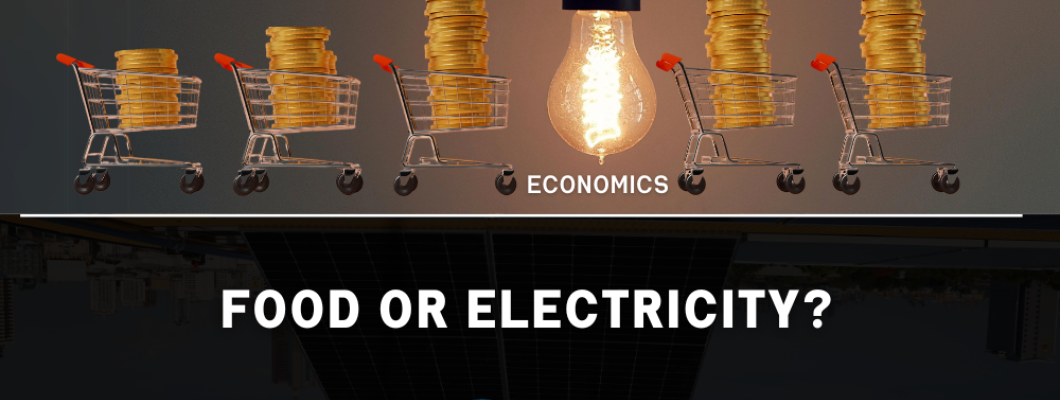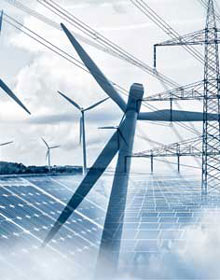
In a move that has sent shockwaves through South Africa, Eskom, the under pressure state-owned power utility, has applied for total revenues of R446 billion for the financial year 2026, R495 billion for 2027, and a staggering R537 billion for 2028. These figures translate to proposed average price increases for direct customers of 36.15% from 1 April 2025 to 31 March 2026, 11.81% for the period from 1 April 2026 to 31 March 2027, and a further 9.10% increase from 1 April 2027 to 31 March 2028. This significant escalation in costs is expected to have a profound impact on the pockets of every citizen and business entity in the country.
The proposed hikes have not gone unnoticed. In parallel with Eskom's announcement, the Democratic Alliance (DA) has launched a petition, urging South Africans to stand up against the planned price increases. The DA argues that the proposed hike will force millions of South Africans to make “an impossible choice between food and electricity.” The political party has been vocal in its criticism of Eskom’s management, asserting that “We refuse to accept a future where electricity is unaffordable for the average household. To add insult to injury, Eskom has been granted permission to overcharge consumers to recover revenue shortfalls.”
The DA’s petition has struck a chord with the public, already gathering over 120,000 signatures. The party has also secured an urgent debate in Parliament to address the issue. DA representatives have made it clear that they will not allow Eskom to continue passing its inefficiencies onto the public, saying, “Eskom cannot keep making ordinary citizens pay for its mismanagement.”
The implications of Eskom's proposed revenue increase are far-reaching. For households, this means tighter budgets and difficult choices. For businesses, particularly small and medium-sized enterprises (SMEs), the hikes could spell disaster. Many SMEs, already struggling to stay afloat amid economic challenges, may find it impossible to absorb such a steep increase in electricity costs, potentially leading to closures and job losses.

Moreover, the proposed price hikes come at a time when South Africa's economy is grappling with slow growth and high unemployment rates. The added financial burden on consumers and businesses could stifle economic recovery and exacerbate existing socio-economic inequalities. Critics argue that instead of continuously hiking prices, Eskom should focus on improving efficiency and reducing operational costs.
Eskom, however, maintains that the price increases are necessary to ensure the sustainability of the power supply and to address infrastructure needs. The utility has faced significant financial challenges in recent years, including massive debt and aging infrastructure. Eskom’s spokesperson stated, “We understand the concerns of the public, but these increases are essential for us to continue providing reliable electricity and to invest in the much-needed upgrades to our infrastructure.”
The debate over Eskom’s proposed price hikes is likely to intensify in the coming months. Public sentiment is clearly against the increases, with many South Africans feeling that they are being unfairly penalized for the utility’s past mismanagement. The DA has vowed to continue its campaign, leveraging public support to put pressure on the government and Eskom to reconsider the proposed hikes.
In the meantime, citizens are bracing for the impact of the proposed increases. For many, the prospect of a 36.15% hike in electricity costs in just over a year is daunting. The reality of having to choose between basic necessities and electricity is a stark reminder of the challenges facing South Africa's energy sector.
As the debate unfolds, one thing is clear: the issue of electricity pricing is not just about numbers. It is about the quality of life, economic stability, and the future of South Africa. The outcome of this debate will have lasting implications for every citizen and business in the country, making it a critical issue that demands careful consideration and decisive action.
If you would like to participate in the DA petition, click here.


1 Comment(s)
We absolutely love your blog and find almost all of your post's to be just what I'm looking for. Would you offer guest writers to write content in your case? I wouldn't mind composing a post or elaborating on a few of the subjects you write regarding here. Again, awesome site!
Leave a Comment